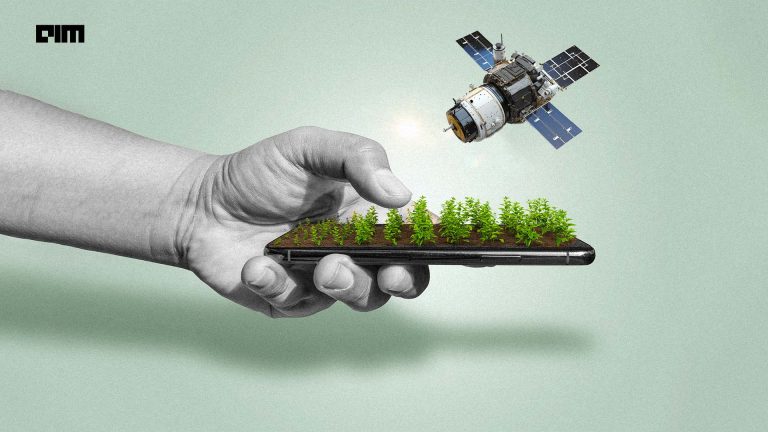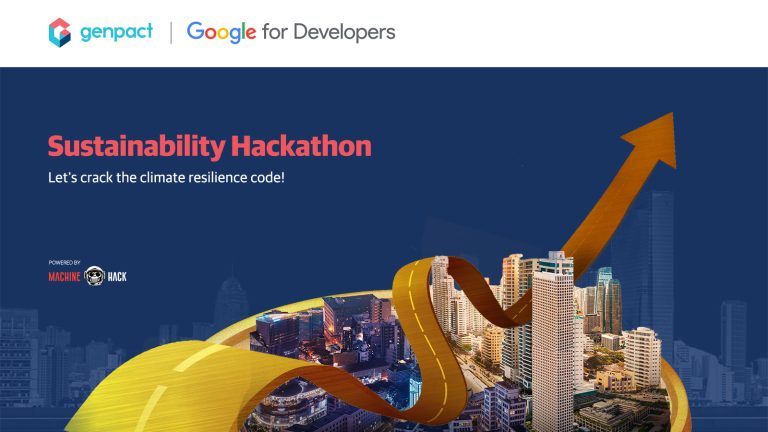|
Listen to this story
|
This year New York City organised its first ever AI fashion show and it couldn’t have been more revolutionary. AI has officially sweeped into every industry there could be and it’s coming to reality way too soon because of the coming of Generative AI. Technology and innovation have always been at the forefront of the fashion business, whether it’s via the adoption of new materials to support sustainability or the development of trend-forward trends and predictions. It comes as no surprise that AI has begun to enter the fashion sector.
Although the fashion industry has explored various cutting-edge technologies such as AI, NFTs, digital IDs, and augmented or virtual reality, it has yet to fully delve into generative AI. While the availability of this emerging technology has been limited until recently, there is growing potential for it to rapidly advance and significantly transform various aspects of business. Although generative AI is still in its early stages and faces certain challenges, indications suggest that it could quickly evolve and have a profound impact on the fashion industry.
Generative AI goes beyond mere automation; it encompasses augmentation and acceleration. This entails equipping fashion professionals and creatives with technological tools that significantly speed up certain tasks, enabling them to allocate more time to activities that require human expertise. By assessing client preferences and data, generative AI allows the development of individualised fashion experiences. Generative AI algorithms may provide tailored clothing solutions by using consumer inputs like style preferences, body measurements, and purchase history. This degree of customization improves the purchasing experience, raises consumer happiness, and fosters a stronger sense of brand loyalty.
Use cases:
Redefining Fabric and Pattern Design: Fashion labels like Zara are leveraging generative AI algorithms to revolutionize fabric patterns and textures. Through emulating traditional craftsmanship, generative AI empowers designers to create visually captivating fabrics that were previously arduous to achieve manually.
Revolutionizing Virtual Fitting and Customization: Generative AI is reshaping virtual fitting and customization experiences. Brands such as Adidas and Nike have harnessed generative AI-powered platforms, allowing customers to personalize and design their own shoes. This empowers individuals to choose from an array of patterns, colors, and materials, resulting in truly distinct and tailored products.
Predicting Trends and Forecasting: Generative AI plays a pivotal role in trend prediction and forecasting by analyzing extensive data sets including social media posts, fashion blogs, and historical sales records. This enables fashion brands to anticipate consumer preferences and create designs that align with the latest trends, minimizing inventory risks and optimizing business strategies.
Personalized Fashion Styling and Recommender Systems: Generative AI algorithms drive personalized fashion styling and recommender systems, providing tailored outfit suggestions based on individual preferences, body types, and occasions. Leading fashion e-commerce platforms like Stitch Fix employ this technology to enhance the online shopping experience, fostering customer engagement and satisfaction.
Generative AI operates through the examination of extensive datasets containing preexisting designs and patterns in order to identify shared attributes and features. Once familiar with these patterns, the algorithm has the ability to generate fresh designs that integrate these elements in distinctive and inventive manners.
Within the realm of fashion design, generative AI finds utility in fabricating complete garments or particular design components such as patterns, prints, and textures. Designers can input specific variables like bodily measurements, fabric preferences, and design inspirations, prompting the algorithm to produce designs that fulfil these criteria.
But that’s not all. In many different ways, the fashion business has a significant influence on our world. Every step in the value chain, from fibre production through design, manufacture, distribution, consumption, and after-use disposal, has added to the sustainability challenge.
According to McKinsey’s 2019 Apparel CPO Survey, a significant majority of respondents (83%) predicted a decrease in the use of physical samples in favor of virtual samples by 2025. Surprisingly, this transition has been accelerated by the COVID-19 pandemic, exceeding initial expectations. Even renowned luxury brands, known for their emphasis on customer experience and prestigious runway shows, are embracing virtual alternatives and finding innovative ways to showcase their collections.
This shift towards virtual platforms has the potential to yield environmental benefits by reducing CO2 emissions, minimizing water waste, and mitigating the toxic chemical pollution associated with traditional clothing production for advertising purposes. In the past, these garments would often go to waste as they couldn’t be resold to customers.
In the value chain, an often overlooked source of pollution arises from product returns and the associated delivery processes. In countries like China, where shipping is highly efficient and cost-effective, returning items has become a preferred option over not purchasing them initially, particularly when uncertain about fit. This unnecessary back-and-forth results in avoidable pollution. Moreover, with the advent of 3D virtual modeling technologies, personalized virtual fitting rooms are on the horizon. AI can assist in precise size measurements and adjust digital models accordingly.
The fashion industry is on the brink of a revolution as generative AI emerges as a game-changer in design, production, and marketing. Despite the need to tackle challenges and ethical concerns, the possibilities for designers, consumers, and the environment are vast. Embracing generative AI as a catalyst for innovation and sustainability enables the fashion industry to thrive in a rapidly evolving landscape, delivering captivating and purposeful designs that resonate with the future. In 1982, Karl Largerfeld, the creative mind behind Chanel once said, “Improvise. Become more creative. Not because you have to, but because you want to. Evolution is the secret for the next step.”
This article is written by a member of the AIM Leaders Council. AIM Leaders Council is an invitation-only forum of senior executives in the Data Science and Analytics industry. To check if you are eligible for a membership, please fill out the form here.



















































































